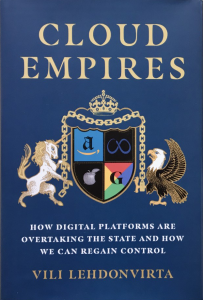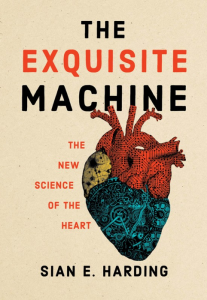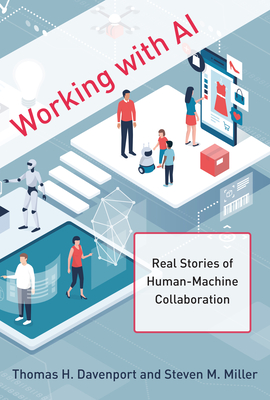Cloud Empires: Governing State-like Digital Platforms and Regaining Control with Professor Vili Lehdonvirta
The rise of the platform economy puts state-like power in the hands of platform owners with little or no accountability. Over the past few decades, the chaotic and lawless early Internet evolved into a digital reality where e-commerce and digital services platform owners dictate decisions that affect millions living in different countries and jurisdictions. In his book “Cloud Empires: How Digital Platforms Are Overtaking the State and How We Can Regain Control” professor Vili Lehdonvirta explains how tech platforms got to where they are. The book outlines the history and evolution of tech platforms by telling the stories of individuals, the role they played in shaping and reshaping the Internet leading to the present day digital reality. Lehdonvirta emphasises that we can only begin to democratise digital platforms if we recognize them for what they are: institutions as powerful as the state. In this episode of Bridging the Gaps, I speak with Professor Vili Lehdonvirta; we discuss the book, the new social order established by the digital platform companies, and how the accumulated power of platforms could be challenged to hold them more accountable and to regain control.
Vili Lehdonvirta is Professor of Economic Sociology and Digital Social Research at the Oxford Internet Institute at the University of Oxford. His research examines how digital technologies are used to reshape the organisation of economic activities in society. His research focuses on the questions such as what are the implications to workers, entrepreneurs, and states, and how can this digital economy be governed? His research draws on theories and approaches from economic sociology, political economy, industrial relations, new institutional economics, and science and technology studies.
We begin by discussing the chaotic and lawless days of the early Internet. We explore the emergence of the underlying theme to resist the undue influence of outsiders and to resist government regulations in favour of giving users more control, even in the early days of Usenet. We then discuss the emergence of Bitcoin in the context of a number of historic parallels such as the medieval economy and the Athenian peasant revolt. We explore the possibility, or perhaps the impossibility, of achieving true neutrality and privacy using BitCoin. At this point we start looking at the true nature of state-like powers accumulated by today’s cloud empires. An interesting point we touch upon is that similar to independent states and sovereign countries, are these state-like cloud empires protecting their users. We then look at the legal rights of employees working in these giant organisations. Finally we look at the two questions that emerge from the subtitle of the book “How digital platforms are overtaking the state and how we can regain control”. The first question is why it is important that we take back control, and the second question is, how should we do this. This has been an enlightening and thought provoking discussion.
Complement this discussion with Working with AI: Real Stories of Human-Machine Collaboration and then listen to Philosophy of Technology” with Professor Peter-Paul Verbeek.




Connect With Us